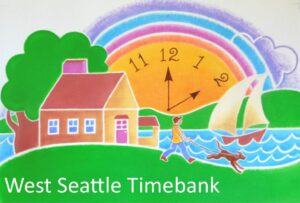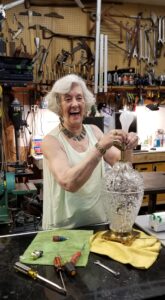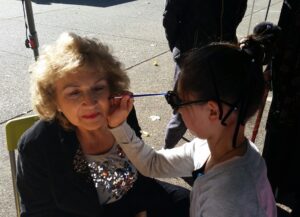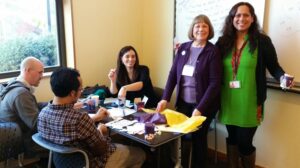Would you be willing to drive a neighbor to the airport? What if you could exchange that hour of driving with an hour of guitar lessons, or help fixing up your bicycle, or for a neighbor to feed your chickens while you’re out of town?
Nonprofits depend on volunteers to provide services and promote their mission. But it can be difficult to recruit potential volunteers who feel like they don’t have enough time to contribute to the cause. In West Seattle, a nonprofit organization is re-writing this dynamic, honoring the value of volunteer time in a community culture that exchanges services instead of exchanging money.
Tamsen Spengler, founding board member of the West Seattle Timebank, explains it this way: “The goal is to build a non-monetary community of support by connecting residents, nonprofits and other service providers.”
At its most basic level, time banking is simply about spending an hour doing something for somebody in your community. That hour goes into your Timebank account as one credit hour. You then have a credit hour to spend on having someone else to do something for you. All hours are valued equally.
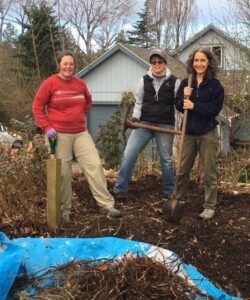
The Timebank partners with local service providers, so volunteers can get credit every time they give their time. This can be a great way for nonprofits to connect with a diverse population of volunteers. Maybe the woodworker who participated in an event at the tool library would be a great volunteer at an after school tutoring program! Also, nonprofits can make special requests for volunteers when they have events or an exceptional need through the Timebank’s system.
Beyond the advantage of having a steady source of volunteers for nonprofits, the community benefits through connections. Neighbors meet neighbors, newcomers feel welcomed, businesses become involved in their community, people step outside of their comfort zone to try new experiences, and members make intergenerational and cross-cultural relationships. All these factors contribute to the remarkable social health of a community in a world where people are feeling more and more isolated.
How does this amazing culture of exchange operate? Tamsen shares some insights:
- Consistent engagement between community members is important. The West Seattle Timebank hosts new member orientations and monthly potlucks for their members. These both nurture the already established community of volunteers and provide a way for new people to plug in. It also cultivates neighborliness! At these events people learn more about each other so they know what exchanges they can make, and simultaneously strengthen the fabric of their community.

- Offer a variety of opportunities. Many members of the Timebank don’t at first realize what skills they can contribute. One person was ecstatic when a neighbor taught him how to make lasagna after years not knowing how to cook for himself. A 12-year old Timebank member painted faces at a festival booth in exchange for ukulele lessons. Other children her age realized that they could paint faces too and got involved volunteering as well.
- Safety measures benefit everyone. All Timebank applicants undergo a basic level of screening, including a Washington State criminal background check and a personal reference check. The Timebank’s website has a profile for each member so they can identify each other and decide if they are comfortable with an exchange. An extra bonus: people who might have lived near each other for years now have a name and personality attached to the neighbors they pass by, encouraging social connections.
- Use the resources you have available. The Timebank is able to operate through an online database, making connections with the help of technology. Local media, like West Seattle Blog and the online site NextDoor, promote the Timebank’s opportunities, and a local coupon book even included Timebank credit. Some employers offer matching gift programs, donating money through platforms like Benevity to the Timebank when their employee donates time or money.
- People don’t get it until they do it. Committing to a volunteer position can be intimidating, but joining a community is comforting. The Timebank’s attitude is that “by joining, you not only widen your circle, you help build a network of neighbors who are ready to take care of each other. Bottom line, it’s good to know you’re not alone, and there are people who will help you … and to whom you can return the favor.”
The West Seattle Timebank is all about neighbors helping neighbors and is a member of TimebanksUSA. They have been a member of Washington Nonprofits since 2017.
